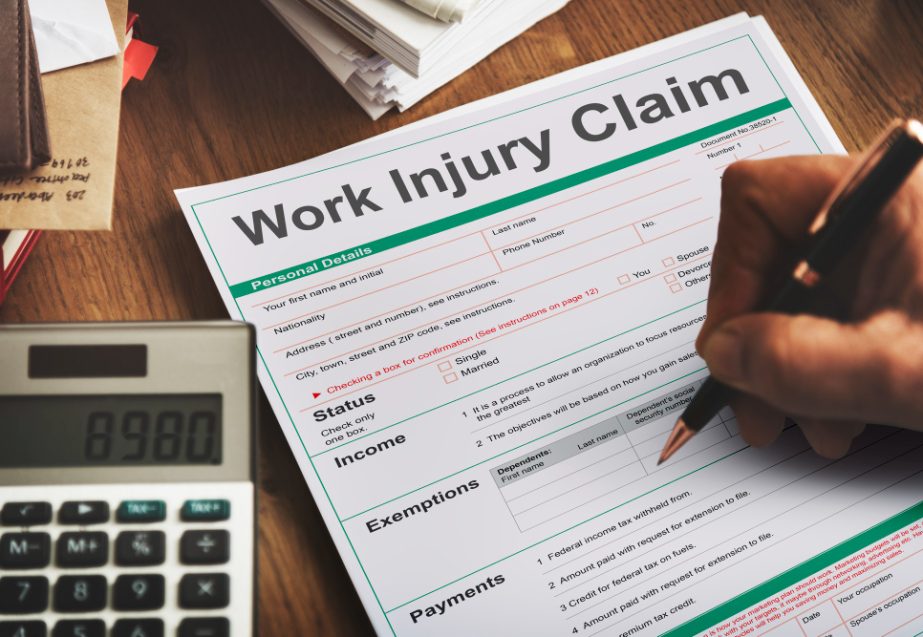
In case you were thinking about how state laws affect personal injury compensation, you are not the only one!
If you’ve been hurt in an accident, your rights depend on where the injury happened. That might sound strange, but it’s true.
Personal injury law isn’t federal, it’s state law. Each state writes its own rules, and those differences can affect your timeline, your compensation, and even whether you’re allowed to file a claim at all.
For someone recovering from an injury, the differences aren’t always obvious at first. But if you wait too long, file in the wrong place, or rely on advice that doesn’t apply to your state, it can cost you the outcome of your case.
Hi. In today’s blog, I will be explaining how state laws affect a personal injury compensation claim. So, if that is something you wanted to know, keep reading till the end, and thank me later…
Damages Are Handled Differently Across States
Not every state treats compensation the same way. Some limit how much you can recover for pain and suffering. Others don’t set caps at all. The types of damages allowed—and the total amount recoverable—can change depending on where the injury took place.
For example:
- California limits pain and suffering in medical malpractice cases
- Colorado sets a cap on non-economic damages in most injury claims
- Washington personal injury law does not cap damages in most personal injury cases
That variation matters. An injury that leads to one outcome in one state might lead to a very different result somewhere else.
Insurance Rules Can Shift the Process
The state you live in affects how insurance works before you even think about a lawsuit. Some states follow a no-fault system, where your own insurance pays first. Others require the person at fault to cover your losses.
Here’s how that difference shows up in practice:
- New York is a no-fault state. That means your personal injury protection (PIP) coverage pays your medical bills, no matter who caused the crash.
- Texas is an at-fault state. The person who caused the accident is responsible for your losses, and their insurer handles the claim.
- Michigan combines no-fault rules with unique restrictions and exceptions, depending on the situation.
Other differences show up in uninsured motorist coverage, PIP availability, and even how insurance disputes are handled when there’s a question about coverage.
If you file a claim thinking the insurer will follow a national standard, you might miss out on something your state provides—or worse, rely on something your policy doesn’t include.
Filing Deadlines Aren’t Uniform
Every state sets its own statute of limitations for personal injury cases. In plain terms, that’s the deadline to file a lawsuit. If you miss it, you may lose the chance to recover anything, no matter how strong your case is.
Some states give you two years. Others give you three. Certain claims against a government agency come with deadlines as short as six months—and require special notice before you can sue.
Statute of limitations time limits don’t reset if you move. They don’t adjust based on when you start treatment. They’re based on the law in the state where the injury happened, not where you live now.
And that can catch people off guard, especially if they waited to file because they were still focused on recovery.
How Fault Affects Compensation Depends on Location
Fault rules don’t just decide who pays. They also decide how much you can recover—especially if both sides share some responsibility.
Here’s the general breakdown:
- In pure comparative fault states, like California, you can recover damages even if you were mostly at fault.
- In modified comparative fault states, like Texas, you can recover only if you were 50% or less at fault.
- In contributory negligence states, like Alabama, you may be barred from recovering anything if you were even 1% at fault.
Insurance companies understand these rules, and they may use them to justify a lower offer—even if you weren’t primarily at fault. That’s why where the injury happened—and how fault is calculated—can shape everything from the opening offer to the final result.
Why Location Affects Case Strategy

Two cases with the same injuries and same facts can play out differently depending on where they’re filed. The local laws are part of it, but so are local procedures, local insurance expectations, and even how judges and juries typically view certain claims.
Some states allow broader discovery. Others limit what evidence can be used. In one state, it’s common to settle before filing suit. In another, a formal complaint may be the first real step in the process.
If your case is being handled by someone unfamiliar with the rules where the injury occurred, that inexperience can slow things down—or lead to mistakes that affect your recovery.
What to Watch for If You Were Injured Out of State
Accidents don’t always happen close to home. If you’re hurt while traveling—on vacation, visiting family, or passing through another state—the law that applies isn’t based on where you live. It’s based on where the injury occurred.
That means your home state’s rules around fault, timelines, and damages may not apply. Even if your insurance policy is written in your state, the claim itself will be governed by the law where the crash, fall, or injury took place.
That can get confusing fast. You might receive letters or paperwork referencing rules that don’t match what you’ve read online.
And if you contact an attorney in your home state, they may not be able to handle the case—or they may need to refer it to someone who practices in the state where the injury occurred.
If you’re in this situation, don’t wait to ask questions. The deadlines still apply, even if you’re unfamiliar with them.
And the longer it takes to sort out the jurisdictional details, the harder it may be to gather evidence or move the case forward.
How a Lawyer Can Help You Apply the Right Law
Even straightforward injury claims can fall apart if they’re filed in the wrong court, under the wrong set of rules, or with the wrong assumptions about coverage. That’s where legal help makes a real difference.
A lawyer who handles personal injury cases in your state can:
- Identify which laws apply to your specific situation
- Calculate the right deadlines based on the type of injury and where it occurred
- Review your insurance policy in light of local coverage requirements
- Push back when insurers apply the wrong standard for fault or compensation
- Help you avoid decisions that might waive your rights or lock you into a low settlement
If you’ve already started a claim and something doesn’t feel right—delays, confusing letters, unexpected denials—it might be tied to a state-specific rule you didn’t know about.
That doesn’t mean you did anything wrong. But it does mean it’s worth having someone review the facts while there’s still time to correct the course.
Frequently Asked Questions (FAQs):
Your claim will be governed by the laws of the state where the injury happened. That includes deadlines, fault rules, and damages.
Sometimes—but not always. Some lawyers handle claims across state lines, while others refer cases to attorneys licensed where the injury occurred.
It depends on how your state handles shared fault. In some states, you can still recover damages even if you were mostly at fault. In others, even a small amount of fault can block recovery.
They may be referencing laws from the state where the accident happened. If the claim is being adjusted under those rules, it’s important to know how they apply to your case.
Why State Law Could Shape the Outcome of Your Case
Personal injury claims don’t play out on a national scale—they play out according to rules written state by state. That affects what deadlines apply, who can be held responsible, how damages are calculated, and what insurance companies are allowed to do.
If you’ve been injured, those rules aren’t background—they’re the structure your entire case will be built on. Knowing that early gives you a clearer view of what’s possible—and what can go wrong if the wrong rules are being followed.











0 Reply
No comments yet.